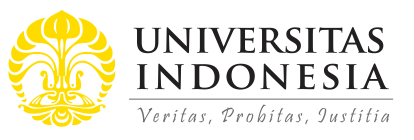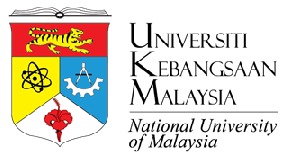
Abstract
Governments and other development stakeholders in many countries are increasingly investing in citizen and community empowerment as a key element in improving sustainable development outcomes. This focus hinges on the belief that putting communities at the fore front of their development and livelihood creation is an effective way to push communities to develop innovative ways of solving their own community problems and creating sustainable livelihoods. Botswana adopted this approach to development and the sustainable livelihoods approach (SLA) was engaged as one of the strategies for community empowerment and poverty alleviation. However, the SLA has not delivered the intended results so far. Thus, this paper argues that the SLA still has the capability to empower rural communities in Botswana to fight against poverty if appropriately used. The SLA focuses on people-centered sustainable development initiatives, which acknowledge that communities have strengths that need to be recognized and reinforced. This approach accepts that a livelihood is not only about economics, but involves capabilities, assets, and activities required for a means of living to cope with stress, recover, and provide sustainable livelihood opportunities for present and future generations. Based on this understanding, this paper sets out to contend that the SLA, despite its weaknesses, can still contribute effectively to the development agenda in Botswana’s rural areas. This paper is informed by a desk review of the literature and relevant documents, and personal experiences of community development/extension workers. Therefore, using the SLA as a theoretical framework, the main purpose of this paper is to explore opportunities and constraints of the Sustainable Livelihoods Approach in the empowerment of the rural communities of Botswana.
References
Abiche, T. T. (2012). Community empowerment and sustainable livelihoods: Transforming social capital into entrepreneurship in rural Southern Ethiopia [Postgraduate thesis, University of South Africa]. UNISA Institutional Repository.
http://uir.unisa.ac.za/handle/10500/10190
Altarelli, V., & Carloni, A. (2000). Inter-Agency Experiences and Lessons: DFID/FAO Forum on Operationalising Sustainable Livelihoods Approaches. Rome: FAO.
Anaafo, D. (2014). Sen’s Capability Approach: An Analytical Tool to Poverty Analysis in Land Reform Environments. Journal of Land and Rural Studies, 2(1), 1–19.
https://doi.org/10.1177%2F2321024913515267
Brown, B. (2005). The incorporation of poverty into adult identity overtime in Botswana: Transformation tales and implications for adult education. International Journal of Lifelong Education., 24(5), 393–404. https://doi.org/10.1080/02601370500169731
Budiriwanto, B. (2007). Pesantren and participatory development in Indonesia. Canberra: Australian National University. https://doi.org/10.25911/5d7a28313ff44
Chambers, R. & Conway, G. R. (1992). Sustainable Rural Livelihoods: Practical Concepts for the 21st Century. UK: Institute of Development Studies.
https://opendocs.ids.ac.uk/opendocs/handle/20.500.12413/775
Chambers, R. (1993). Challenging the Professions: Frontiers for Rural Development. UK: Intermediate Technology Publications Ltd (ITP).
https://www.cabdirect.org/cabdirect/abstract/19941802488
Cohen, D. J. & Prusak, L. (2002). In Good Company: How Social Capital Makes Organizations Work. Harvard Bussiness Review, 80, 107-113.
http://providersedge.com/docs/book_reviews/In_Good_Company.pdf
Cornwall, A. (2002). Making spaces, changing places: Situating participation in development. Working paper series, 170.IDS
https://opendocs.ids.ac.uk/opendocs/bitstream/handle/20.500.12413/3932/Wp170.pdf
Dipholo, K. B., & Molosi-France, K. (2017). The mismatch between the theory and practice of participatory rural development in Botswana: prospects for transformative social change. International Conference on Public Administration and Development Alternatives (IPADA).
Dipholo, K. B. (2002). Trends in participatory Development. Journal of Social Development in Africa, 17(1), 59-79. https://doi.org/10.4314/jsda.v17i1.23846
Fisher, S. (2002). A Livelihood less Ordinary: Applying the Sustainable Livelihoods Approach in the Australian Indigenous Context. Alice Springs, NT: Centre for Appropriate Technology.
Freire, P. (1972). Pedagogy of the Oppressed. London, UK: Penguin Books.
https://www.penguin.co.uk/books/225/22583/pedagogy-of-the-oppressed/9780241301111.html
Gboku, M., Dipholo, K. B. & Molosi, K. (2009). Training needs assessment of rural training centers and the application of indigenous knowledge. University of Botswana
Government of Botswana. (2002). Revised National Policy on Rural Development. Botswana: Ministry of Finance and Development Planning.
Ife, J. (2010). Capacity building and community development. In S. K. & M. Clarke (Ed.), Challenging Capacity Building: Comparative Perspectives (pp. 67–84). London: Palgrave Macmillan. https://doi.org/10.1057/9780230298057_4
Ireni-Saban, L. (2019). Diplomacy in Times of Disaster: Management through Reputational Capital. Journal of Management Policy and Practice, 20(3).
https://doi.org/10.33423/jmpp.v20i3.2234
Kadozo, N. (2009). Sustainable Livelihood Approaches: The future for income generating projects in urban areas? An evaluation of five income generating projects in Tembisa [Doctoral dissertation, University of South Africa]. UNISA Institutional Repository.
http://uir.unisa.ac.za/handle/10500/3248
Kinyashi, G. (2006). Towards Genuine Participation for the Poor. Tanzania: Spring.
http://www.eldis.org/fulltext/genuine_participation.pdf
Ledwith, M. (2011). Community development: A critical approach. (2nd ed.). Bristol: Policy Press.
Lekobane, K.R and Mooketsane, K. (2016). Rural Poverty in Botswana: A Gendered Analysis. Journal of Social and Development Sciences, 7(1), 48–58.
https://doi.org/10.22610/jsds.v7i1.1235
Ludi, E., & Slater, R. (2008). Briefing Note for the Poverty–Wellbeing Platform. Briefing note, Swiss Agency for Development and Cooperation. London: ODI.
Maphosa, F., Nta, U. C., & Seleka, M. (2019). An Appraisal of Participation and Rural Development in Botswana: The Case of Mmankgodi Village. Botswana Notes, 51, 78–92.
Mazibuko, S. (2013). Understanding Underdevelopment through the Sustainable Livelihoods Approach. Community Development, 44(2), 173–187.
https://doi.org/10.1080/15575330.2012.683798
May, C. R., Mair, F., & Finch, T. (2009). Development of a theory of implementation and integration: Normalisation process theory. Implementation Science, 4(29), 1-9.
https://doi.org/10.1186/1748-5908-4-29
Ministry of Local Government. (2010). Recommendations of the report of the task force on the review of the impact of the Remote Area Development Programme on the livelihoods of remote area dwellers. Gaborone: Applied Research Unit.
Moepeng, P. (2013). Rural development in Botswana: Experience from elsewhere and emerging issues (No. 1745-2016-141003).
Molosi-France, K. (2018). A Relational View of San Poverty in Botswana: A Case Study of Khwee and Sehunong. South African Review of Sociology, 49(3–4), 1–15.
https://doi.org/10.1080/21528586.2018.1552893
Morse, S., & McNamara, N. (2013). Sustainable livelihood approach: A critique of theory and practice. Berlin, Germany: Springer Science & Business Media.
Mosha, A. (2015). Urban agriculture in Botswana. Commonwealth Journal of Local Governance, 18(4842), 48–67. https://doi.org/10.5130/cjlg.v0i18.4842
Mosse, D. (2007). Power and the durability of poverty: A critical exploration of the links between culture, marginality and chronic poverty. Manchester: Chronic Poverty Research Center.
Osei-Hwedie, K. (2004). Poverty eradication in Botswana: Towards the realisation of vision 2016. Pula: Botswana Journal of African Studies, 18(1), 7–18.
http://hdl.handle.net/10311/894
Robeyns, I. (2005). The Capability Approach: a theoretical survey. Journal of Human Development, 6(1), 93–117. https://doi.org/10.1080/146498805200034266
Saugestad, S. (2001). The inconvenient indigenous: Remote area dwellers in Botswana, donor assistance and the first people of the Kalahari. Sweden: Nordic Africa Institute.
Seekings, J. (2017). The discourse of dependency and the agrarian roots of welfare doctrines in Africa: The case of Botswana. Sozialpolitik, 2(2), 1–23. https://doc.rero.ch/record/306439
Seleka, T. B., Siphambe, B., Ntseane, D., Mbere, N., Kerapeletswe, C., Sharp, C. (2007). Social safety nets in Botswana: Administration, targeting and sustainability. Gaborone, Botswana: Lightbooks.
Sen, A. (1992). Inequality Reexamined. New York, USA: Oxford University Press.
Serrat O. (2017.). The Sustainable Livelihoods Approach In Knowledge Solutions. Singapore: Springer. https://doi.org/10.1007/978-981-10-0983-9_5
Steiner, A. A., & Farmer, J. (2018). Engage, participate, empower: Modelling power transfer in disadvantaged rural communities. Politics and Space, 36(1), 118-138.
https://doi.org/10.1177%2F2399654417701730
Taherdoost, H. (2016). Sampling methods in research methodology; How to choose a sampling technique for research. International Journal of Academic Research in Management, 5(2), 18–27. https://dx.doi.org/10.2139/ssrn.3205035
Tannahall, C. (2014). Community empowerment and building. Edinburgh: The Royal Society of Edinburgh.
van der Merwe, M., Mberengwa, L. R., & Lekoko, R. N. (2010). Community empowerment in Botswana: the practitioners perspective. Journal of Family Ecology and Consumer Sciences, 38, 13–22.
Recommended Citation
Molosi-France, Keneilwe and Dipholo, Kenneth
(2020).
Empowering Botswana’s rural communities through the Sustainable Livelihood approach: Opportunities and constraints.
ASEAN Journal of Community Engagement, 4(2), 342-359.
Available at: https://doi.org/10.7454/ajce.v4i2.1101







